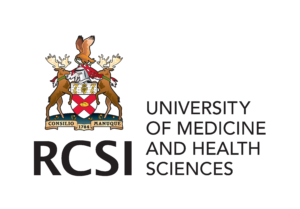Project Area: Health policy and systems research
Project Summary
According to the World Health Organisation (WHO), weak health workforce retention across Europe represents a ‘ticking time-bomb’ driven by both labour (increased attrition) and mental health (dissatisfaction, stress, burnout, extreme workloads etc.) crises. To address the retention crisis, the WHO’s “Framework for Action on the Health and Care Workforce 2023-2030” calls for policy actions to prioritise improving the working conditions and safeguarding health and well-being. Thus, the work environments and conditions of healthcare are an urgent national and international research priority. Building on research illustrating the impact of limited ‘voice’ mechanisms for hospital doctors in Ireland (Creese at al. 2021), and the impact of COVID-19 working conditions on the mental health of healthcare workers in Europe (Byrne et al. 2023), this project will explore, and seek to improve, the work conditions of healthcare workers (doctors, nurses, allied healthcare workers) through a critical focus on ‘solidarities’.
Solidarities broadly refer to a shared sense of morality, experience, interests, language and purpose that are enacted via the formal collective representation of trade unions and the informal collective experience of peer support and camaraderie, particularly in work contexts of high stress. As such, solidarities speak to two key mechanisms that shape healthcare workers’ experience of work – voice, and resources for coping with high stress work. The aim of this project is subsequently to generate evidence and a novel understanding how formal solidarities (e.g. collective representation/unions/voice mechanisms) and informal solidarities (peer support mechanisms) can be leveraged to improve work conditions and thus workforce retention in healthcare. This will be achieved by drawing on an interdisciplinary approach (e.g. heath services research, sociology of work, industrial relations), across work packages which will map the institutional landscape of collective representation in health, explore the concept of solidarities in the literature, examine healthcare workers perception and experience of both formal and informal solidarities in work, and develop an evidence-based set of resources for retention. Via this solidarities frame, the project seeks to inform the retention policy action priorities identified by the WHO, namely improving the working conditions and safeguarding health and well-being.
Skills Required
(If applying for this project you will be asked to outline how you meet the skills required below)
Essential
- Masters in a social science, health services research or related discipline.
- Evidence of conducting/and or taking part in all aspects of qualitative research, from study design to data collection, analysis and publication of findings.
- Evidence of conducting/and or taking part in semi-structured qualitative interviews.
- Awareness of the process and stages involved in qualitative data analysis.
- Strong communication skills (written and oral).
- Practical experience of evaluating and interpreting complex scientific literature.
- Knowledge of the healthcare environment in Ireland and the main representative bodies.
- Strong organisational and administrative skills.
- The ability to work on one’s own initiative as well as in a team environment.
Desirable
- Understanding of the role of evidence synthesis.
- Project management experience.
- Disseminating research findings to academic and policy audiences.
- Evidence of conducting qualitative data analysis e.g. ability to use qualitative data analysis packages (e.g., NVivo, MaxQDA).
- Experience of publication writing and developing research ethics applications.
- Experience liaising with policy stakeholders.
Supervisory team:
Dr John-Paul Byrne, PI/Primary Supervisor,
Graduate School of Healthcare Management (GSM), RCSI
Prof Seán Ó Riain, Sociology Department, Maynooth University
This project will be based in RCSI, University of Medicine and Health Sciences.


